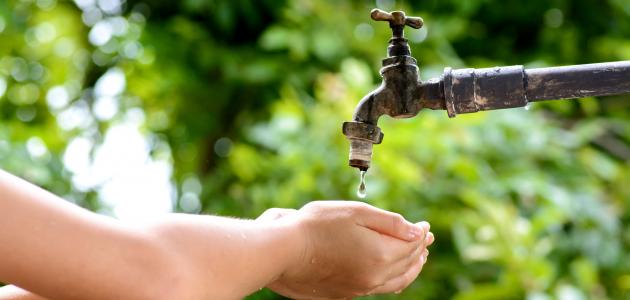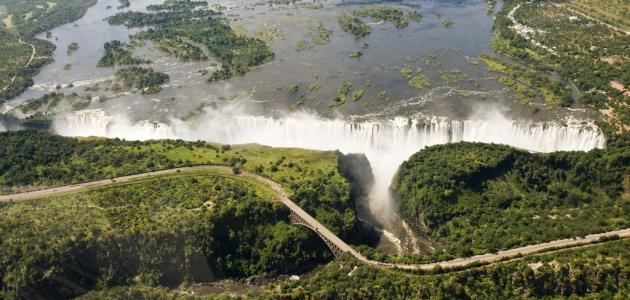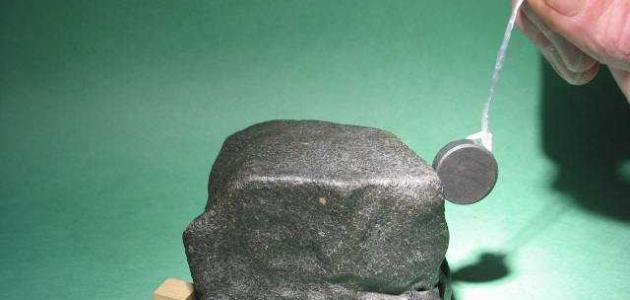The importance of water to life on planet Earth
Earth is unique among all the planets in the solar system in having water in three forms: Solid, liquid, and gaseous, according to what science has reached so far, as water covers approximately 75% of the Earth’s area, and exists in its three states in the layers of the atmosphere, so that it is formed in the troposphere, through which it moves to the stratosphere, and water is of great importance. When it comes to the life of living organisms, it is considered a necessary part of completing the most important physiological processes in their bodies. Such as nutrition and absorption of waste generated within cells. For example, plants get rid of excess amounts of water by excreting it as moisture on their leaves.
Water contributes to creating biological diversity in the place where it is located, as any change in water quality leads to a change in the numbers and types of living organisms around it. For example, places where water collects, such as: streams, lakes, and wetlands such as swamps, are considered sensitive points because they are easily Sediments and other pollutants reach it or the places near it, causing a change in the quality of the water there and thus disrupting environmental systems.
The humid environment is considered an ideal natural environment for living organisms to live. Such as plants, animals, and birds. These environments also contribute to creating commercial and recreational activities in the region that provide employment opportunities for many. Water also plays a major role in shaping the topography of the Earth’s surface, such as: canyons, plains, and places where water accumulates as a result of floods. It is worth noting. Water is unique in that it has many properties that living organisms of all kinds need, by being involved in chemical processes and reactions within their bodies, in addition to maintaining the shape of the basic components of their cells.
Read also:Converting solar energy into electricityThe importance of water in the climate equation
Water plays a prominent role in the climate system of the planet Earth, as the role of water vapor present in the atmosphere and its circulation in the atmosphere through the water cycle in nature in distributing temperatures on Earth and thus affecting the climate cannot be overlooked, as water vapor is considered one of the most important gases present in the atmosphere. The temperature of the Earth’s surface without greenhouse gases would have reached -18 degrees Celsius, while in the presence of these gases it would be approximately 15 degrees Celsius, with the effect of approximately 20.6 degrees Celsius due to this difference. Because of the presence of water vapor in the troposphere, what remains is distributed between the influence of carbon dioxide at approximately 7.2 degrees Celsius, ozone gas at a value of 2.4 degrees Celsius, nitrogen dioxide at a value of 1.4 degrees Celsius, methane at approximately 0.8 degrees Celsius, and other gases at a value of 0.6 degrees Celsius.
The water in the vast oceans that cover the Earth's surface plays a role in distributing temperatures. This depends on its density, salinity, and temperature, the variation of which causes the movement of water currents across the oceans, as the movement of warm water from the southern regions to the cold northern regions causes it to lose its heat, which causes it to cool and increase its density and thus descend towards the depth, while the warmer northern waters float in their place. Which prevents water from freezing, and thus water affects the climate of the continents. The water in the oceans also absorbs temperatures about three times more than what is absorbed on the surface of the land, while losing it more slowly, which leads to a difference in climate in regions and continents depending on the topographic relief in which they are located. .
Read also:Lake ConstanceThe importance of water to humans
The importance of water to the human body
Water is considered one of the most important nutrients for the human body, as the body depends primarily on its presence. The following is an explanation of the importance of water to the human body:
- Water is an essential element for the formation of saliva in the mouth.
- It maintains the body's moisture, thus regulating its temperature and maintaining healthy skin.
- It protects some parts of the body from damage or inflammation, such as: joints, spinal cord, and tissues.
- It contributes to the process of getting rid of body waste. Such as sweat, feces, and urine, and ensuring that the organs responsible for them work well, such as: the kidneys and intestines.
- Prevents constipation.
- Facilitates the digestion process.
- It dissolves vitamins and minerals within the food to facilitate their absorption.
- It helps to lose excess weight; Therefore, it is included in diets.
- Improves blood circulation in the human body.
- It protects against many diseases; Such as high blood pressure, infections, exercise-induced asthma, kidney stones, and others.
- Increases body energy.
- Improves concentration and activates memory.
- It improves a person's mood, as its deficiency leads to feeling tired and exhausted.
- Protects the body from dehydration.
The importance of water in all aspects of human life
The importance of the presence of water in human life is not limited to using it for drinking only, but there are many other aspects in which water is indispensable, as it is used in the following:
Read also:Water treatment methods- Cooking and food preparation.
- Personal hygiene and showering.
- Daily use, such as: washing clothes, utensils and dishes.
- Irrigating plants, agricultural crops, parks and gardens.
- Cleaning homes and complexes.
- Manufacture of some products.
- entertainment; Such as pools and swimming pools.
Factors affecting human water needs
The human body depends primarily on water, which is the main chemical component of the body, and there are several factors that are relied upon to determine the most appropriate amount of water for humans. These factors can be summarized as follows:
- sport activities: When practicing any physical activity, the body sweats to maintain its moisture and temperature and therefore needs an increase in the amount of water. This can be achieved by drinking water before and after exercise, or drinking sports drinks that contain several minerals and elements that the body needs.
- The surrounding environment: The human body's need for water increases with the increase in temperature and humidity in the surrounding environment, as well as at high altitudes. Therefore, it is necessary to pay attention to the necessity of increasing the amount of water consumed on hot or humid days, even if one does not exercise at that time.
- Body health: When the body is exposed to a health illness that causes fever, diarrhea, or other medical conditions that may cause the loss of body fluids, the body’s need for water increases to compensate for what has been lost, and the need to drink additional amounts of water increases in the event of chronic diseases. Such as diabetes, heart disease, inflammatory diseases, and stones of the bladder and urinary tract. Pregnancy and breastfeeding periods also cannot be overlooked, during which a woman’s need for water increases.
- travel: Moving from one climate to another while traveling leads to sweating and loss of fluids, and thus the need for more water to compensate for this loss. Therefore, it is necessary to make sure to drink water at all times while traveling.
How to conserve water
Water is considered the main element for sustaining life, in addition to being one of the limited natural resources on the face of the Earth, and it is possible to face a shortage in its presence one day in the future if it is consumed unwisely, so several practices must be followed that will conserve water, the most prominent of which are: These practices that can be applied at the individual and societal levels are as follows:
- Verify that there are no leaks in the toilet, as leaking water in the toilet causes the loss of large amounts of water daily. The presence of a leak can be verified by placing several drops of food coloring in the toilet and observing whether it disappears or not.
- Stop using the toilet incorrectly; That is, a wastebasket, or a place for cigarette ash and butts, and consuming an unnecessary amount of water to dispose of them.
- Place one or two water bottles containing several grains of gravel or sand at the bottom inside the toilet tank; This is to create a space that prevents the basin from filling with a large amount of water, and this will save the amount of water flowing out when the pump is pressed.
- Spending less time in the shower, and using water-saving equipment installed on the shower, which reduces water flow, and which are usually available in plumbing stores.
- Save water and rationalize its consumption by closing the tap during the teeth cleaning process. You can also use a cup to rinse the mouth instead of pouring tap water.
- Save water during the shaving process, and try filling the sink with a small amount of water, enough to wash the razor after you finish.
- Continuous and periodic checking of faucets and pipes to ensure that they are free of any leaks. Because it causes large amounts of water to be wasted throughout the day.
- Operate the dishwasher with a full load only. If washing dishes manually, be careful not to leave the water running, and rinse them quickly without wasting water.
- Run the automatic washing machine with a full load of clothes.
- Wash vegetables and fruits in a bowl and then rinse them quickly, instead of washing them under running water.
- Keep a bottle of chilled water in the refrigerator, which reduces the number of times you open the tap and wait for cold water suitable for drinking.
- Water the garden plants according to a schedule, as the ideal time to water them is early in the morning, and rainwater can also be used to irrigate them.
- Water the garden plants after checking their need for water. This is done by stepping on the grass near it, and if the foot is slightly planted in the soil, this means that it does not need water.
- Increase the planting of plants and trees that do not require large quantities of water.
- Taking advantage of the placement of water gutters so that water collected from rain spills onto trees and plants in the garden instead of spilling onto the sidewalk or street.
- Clean the driveways and sidewalks using a broom instead of a water hose, and wash the car using a bucket containing soap and water and use the hose to rinse the soap off only.
- Prevent children from wasting water by playing with water hoses, especially on hot summer days.









